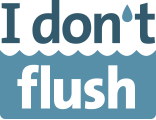Fats, Oils, Grease
What should I do with fats, oils and grease?
Don’t pour that stuff down the drain! Cool it. Scrape it. Green bin it.

Protect your pipes!
What happens when you put fats, oils and grease (FOG) down the sink or toilet? When they cool, they form blockages. FOG clogged pipes are big trouble. They can lead to basement flooding and sewage overflows onto streets and surrounding areas. These clogs can also damage your local wastewater facility, and your water rates may go up to cover costly repairs.
Bottom line: Improper FOG disposal hurts your wallet and the environment.
Resources
When warmed up fats, oils and greases are washed down the drain and into the plumbing system, they can cause major problems for pipelines! They harden as they cool and can then stick to the insideo above of thede of water pipes, where they can build up and eventually clog the pipelines. This can lead to major sewage problems! Check out the video below of the “Fatberg” discovered in the sewer system in London, England that was the size of a bus!
Put FOG where it belongs! Cool it. Scrape it. Green bin it.*
*green bin, garbage or waste depot – ask your municipality
Here are some tips to help you properly dispose of fats, oils and grease:
- After a meal, allow any leftover FOG to cool in pans and then scrape into the green bin.
- Liquid FOG can be poured into containers such as tin cans, empty coffee cans or milk cartons and left to harden, then scraped into the green bin.
- Wipe excess FOG from pans and dishes with a paper towel and dispose of it in the green bin.
No green bin? Please place FOG in the trash.
Remember:
- Don’t pour grease down sink drains or toilets!
- Don’t run water over dishes, pans, fryers or griddles to wash oil and grease down the drain!


